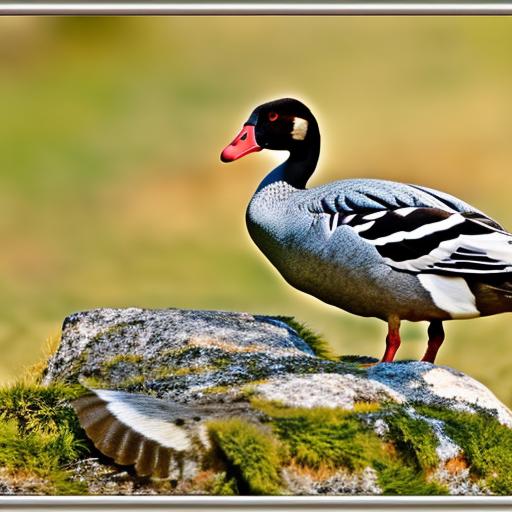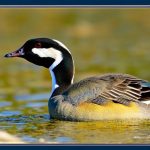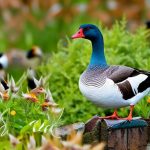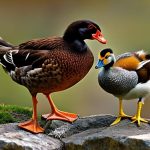Geese infestations on properties have become a common problem in many areas. These large birds can cause significant damage to lawns, gardens, and other outdoor spaces. They leave behind droppings that can be unsightly and unsanitary. Additionally, geese can be aggressive and territorial, posing a threat to people and pets. It is important to address this issue promptly to prevent further damage and ensure the safety of your property.
Geese infestations can be particularly problematic because these birds are highly adaptable and can thrive in a variety of environments. They are attracted to areas with open spaces, water sources, and abundant food. This means that properties near bodies of water, such as ponds or lakes, are especially vulnerable to geese infestations. However, even properties without direct access to water can still be targeted by geese if they provide suitable habitat and food sources.
Key Takeaways
- Geese infestations can cause damage to properties and pose health risks.
- Understanding geese behavior can help in implementing effective control methods.
- Natural deterrents like landscaping and decoys can help keep geese away.
- Physical barriers like fences and netting can prevent geese from entering your property.
- Electronic repellents like sound and light devices can also be effective in geese control.
Understanding the Behavior of Geese
To effectively address geese infestations, it is important to understand the behavior and habits of these birds. Geese are social animals that typically travel in flocks or family groups. They are known for their honking calls and distinctive V-shaped flight patterns. Geese are herbivores and primarily feed on grasses, grains, and aquatic plants.
Geese choose certain areas for nesting and feeding based on several factors. They prefer areas with open spaces that provide good visibility for spotting predators. Bodies of water are attractive to geese because they offer protection from predators and a source of food. Geese also prefer areas with short grasses, as this makes it easier for them to spot potential threats while grazing.
Natural Deterrents for Keeping Geese Away
There are several natural deterrents that can help keep geese away from your property. Planting certain types of vegetation can make your property less attractive to geese. Tall grasses and shrubs can provide cover for predators, making geese feel less secure. Additionally, planting prickly or thorny plants can create physical barriers that deter geese from landing or walking on your property.
Using decoys is another effective natural deterrent. Geese are territorial animals and will avoid areas where they see other geese. Placing decoys, such as plastic geese or swans, near water sources can trick geese into thinking the area is already occupied and discourage them from settling there.
Installing birdhouses for natural predators, such as owls or hawks, can also help keep geese away. These birds of prey are natural predators of geese and their presence can deter geese from nesting or feeding in the area.
Physical Barriers to Prevent Geese from Entering Your Property
Physical barriers can be an effective way to prevent geese from entering your property. Fencing is a common method used to keep geese out. A fence should be at least three feet high and have small openings to prevent geese from squeezing through. It is important to bury the bottom of the fence at least six inches deep to prevent geese from digging under it.
Netting can also be used to create a physical barrier. Netting can be installed over ponds or other water sources to prevent geese from accessing them. It is important to ensure that the netting is securely fastened and does not pose a risk to other wildlife.
Landscaping can also be used as a physical barrier. Creating uneven terrain or installing rocks or boulders can make it difficult for geese to walk or land on your property. Additionally, creating narrow pathways or planting dense vegetation can discourage geese from entering certain areas.
Electronic Repellents for Geese Control
Electronic repellents can be an effective way to deter geese from your property. Sonic devices emit loud noises that mimic the distress calls of geese or other predators. These noises can scare geese away and make them think there is a threat nearby. Ultrasonic devices emit high-frequency sounds that are inaudible to humans but can be irritating to geese. These devices can be placed around your property to create a deterrent zone.
Laser devices are another electronic repellent option. These devices emit a laser beam that moves in random patterns, creating the illusion of movement and scaring geese away. Laser devices can be particularly effective at night when geese are less likely to see other deterrents.
Chemical Repellents for Geese Control

Chemical repellents can be used to deter geese from your property. Methyl anthranilate is a non-toxic chemical that is derived from grapes and has a strong odor that is unpleasant to geese. It can be sprayed on grass or other areas where geese are likely to feed. Capsaicin, the active ingredient in chili peppers, can also be used as a repellent. It can be mixed with water and sprayed on grass or other surfaces to deter geese.
Polybutene is another chemical repellent that can be used to deter geese. It is a sticky substance that can be applied to surfaces such as grass or rocks. When geese come into contact with polybutene, it sticks to their feathers and makes it difficult for them to fly or swim.
Scare Tactics to Keep Geese Away
Scare tactics can be an effective way to keep geese away from your property. Motion-activated sprinklers can startle geese when they approach and discourage them from landing or feeding in the area. Scarecrows can also be effective at deterring geese. Placing scarecrows in open areas or near water sources can make geese think there is a human presence and discourage them from settling in the area.
Mylar balloons can be used as a visual deterrent. These shiny balloons move with the wind and reflect sunlight, creating a deterrent effect. Placing mylar balloons near water sources or in open areas can help keep geese away.
Professional Geese Control Services
If you are unable to effectively control geese infestations on your own, it may be necessary to hire a professional geese control service. These services have the expertise and equipment to effectively address geese infestations and prevent further damage to your property.
Professional geese control services can use a combination of methods, such as physical barriers, electronic repellents, and scare tactics, to deter geese from your property. They can also provide regular maintenance and monitoring to ensure that the deterrent methods are effective.
Best Practices for Geese Control on Your Property
To effectively control geese infestations on your property, it is important to follow best practices. Regular maintenance is key to preventing geese from settling in your area. This includes keeping grass and vegetation trimmed, removing any standing water or food sources, and regularly cleaning up any droppings or debris.
Consistency in deterrent methods is also important. Geese are intelligent animals and can quickly adapt to new deterrents. It is important to consistently use a combination of methods to keep geese away from your property.
Monitoring the effectiveness of deterrents is also crucial. Regularly assess whether the deterrent methods you are using are effectively keeping geese away. If certain methods are not working, it may be necessary to try different approaches or seek professional assistance.
Conclusion and Summary of Geese Control Methods
Geese infestations on properties can be a significant problem, causing damage and posing a threat to safety. Understanding the behavior of geese and implementing effective deterrent methods is crucial for addressing this issue.
Natural deterrents such as planting certain types of vegetation, using decoys, and installing birdhouses for natural predators can help keep geese away. Physical barriers such as fencing, netting, and landscaping can also be effective in preventing geese from entering your property.
Electronic repellents such as sonic devices, ultrasonic devices, and laser devices can create a deterrent zone and scare geese away. Chemical repellents such as methyl anthranilate, capsaicin, and polybutene can be sprayed or applied to surfaces to deter geese.
Scare tactics such as motion-activated sprinklers, scarecrows, and mylar balloons can also be effective in keeping geese away. If all else fails, hiring a professional geese control service can provide the expertise and equipment needed to effectively address geese infestations.
By following best practices such as regular maintenance, consistency in deterrent methods, and monitoring the effectiveness of deterrents, you can successfully control geese infestations on your property. Taking action to prevent geese from taking over your property is important for maintaining its appearance and ensuring the safety of those who use it.
If you’re looking for effective ways to keep geese away from your property, you might also be interested in learning about what geese can eat. Poultry Wizard has a helpful article on whether geese can eat chicken feed. Understanding their dietary preferences can help you make informed decisions when it comes to deterring geese from your property. Check out the article here for more information.
FAQs
What are some common problems caused by geese on your property?
Geese can cause damage to lawns, gardens, and crops. They can also leave behind droppings that can be unsightly and unsanitary.
What are some natural ways to keep geese away?
Some natural ways to keep geese away include planting tall grasses or shrubs, using decoys or scarecrows, and using noise deterrents such as wind chimes or loud music.
What are some non-lethal methods to keep geese away?
Non-lethal methods to keep geese away include using visual deterrents such as reflective tape or balloons, using taste deterrents such as bitter sprays, and using motion-activated sprinklers.
What are some humane ways to keep geese away?
Humane ways to keep geese away include using non-lethal methods such as visual and taste deterrents, as well as providing alternative habitats for the geese to live in.
What are some legal ways to keep geese away?
Legal ways to keep geese away include obtaining permits for certain methods such as egg addling or relocation, and following local laws and regulations regarding the use of deterrents. It is important to check with local authorities before implementing any methods.
Meet Walter, the feathered-friend fanatic of Florida! Nestled in the sunshine state, Walter struts through life with his feathered companions, clucking his way to happiness. With a coop that’s fancier than a five-star hotel, he’s the Don Juan of the chicken world. When he’s not teaching his hens to do the cha-cha, you’ll find him in a heated debate with his prized rooster, Sir Clucks-a-Lot. Walter’s poultry passion is no yolk; he’s the sunny-side-up guy you never knew you needed in your flock of friends!







